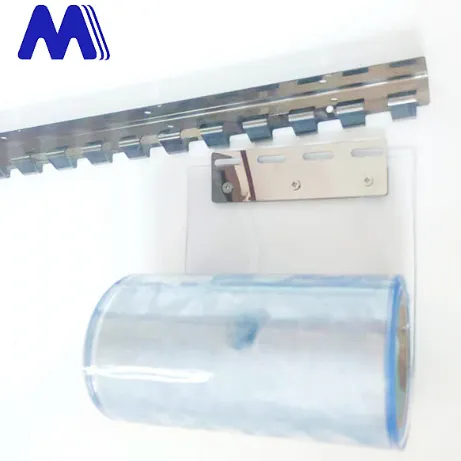- Afrikaans
- Albanian
- Amharic
- Arabic
- Armenian
- Azerbaijani
- Basque
- Belarusian
- Bengali
- Bosnian
- Bulgarian
- Catalan
- Cebuano
- Corsican
- Croatian
- Czech
- Danish
- Dutch
- English
- Esperanto
- Estonian
- Finnish
- French
- Frisian
- Galician
- Georgian
- German
- Greek
- Gujarati
- Haitian Creole
- hausa
- hawaiian
- Hebrew
- Hindi
- Miao
- Hungarian
- Icelandic
- igbo
- Indonesian
- irish
- Italian
- Japanese
- Javanese
- Kannada
- kazakh
- Khmer
- Rwandese
- Korean
- Kurdish
- Kyrgyz
- Lao
- Latin
- Latvian
- Lithuanian
- Luxembourgish
- Macedonian
- Malgashi
- Malay
- Malayalam
- Maltese
- Maori
- Marathi
- Mongolian
- Myanmar
- Nepali
- Norwegian
- Norwegian
- Occitan
- Pashto
- Persian
- Polish
- Portuguese
- Punjabi
- Romanian
- Russian
- Samoan
- Scottish Gaelic
- Serbian
- Sesotho
- Shona
- Sindhi
- Sinhala
- Slovak
- Slovenian
- Somali
- Spanish
- Sundanese
- Swahili
- Swedish
- Tagalog
- Tajik
- Tamil
- Tatar
- Telugu
- Thai
- Turkish
- Turkmen
- Ukrainian
- Urdu
- Uighur
- Uzbek
- Vietnamese
- Welsh
- Bantu
- Yiddish
- Yoruba
- Zulu
Jan . 09, 2025 10:58
Back to list
PVC Curtain Benefits and Usage Guide
PVC curtains have emerged as an indispensable component across various industries, revolutionizing how businesses manage space, energy efficiency, and hygiene. Often unassuming, these flexible doors made from polyvinyl chloride (PVC) offer myriad advantages that blend practicality with cutting-edge innovation.
From the perspective of noise reduction, specially crafted PVC curtains help to dampen sound between work areas. This feature is significantly beneficial in environments where machinery or loud processes are in operation, enhancing workplace comfort and reducing noise pollution. Installation and maintenance of PVC curtains are straightforward, adding to their appeal. They require minimal structural modifications, making them a cost-effective solution for both temporary fixes and permanent installations. Regular cleaning with mild detergents suffices to maintain their transparency and effectiveness, ensuring compliance with hygiene standards. Environmentally, PVC curtains are sustainable choices. The material is highly recyclable, and various eco-friendly alternatives have been developed to reduce potential environmental impacts. Enterprises concerned with sustainability can select products made from recycled PVC, aligning their operational needs with environmental stewardship goals. In conclusion, PVC curtains represent a fusion of functionality and innovation. Their ability to enhance efficiency, safety, and sustainability in diverse industrial applications underscores their value in today's competitive business landscape. As industries continue to evolve, the humble PVC curtain quietly maintains its place as an essential tool, embodying experience, expertise, authoritativeness, and trustworthiness. By integrating these solutions, businesses ensure they are not only keeping pace with industry standards but also setting new benchmarks for operational excellence.


From the perspective of noise reduction, specially crafted PVC curtains help to dampen sound between work areas. This feature is significantly beneficial in environments where machinery or loud processes are in operation, enhancing workplace comfort and reducing noise pollution. Installation and maintenance of PVC curtains are straightforward, adding to their appeal. They require minimal structural modifications, making them a cost-effective solution for both temporary fixes and permanent installations. Regular cleaning with mild detergents suffices to maintain their transparency and effectiveness, ensuring compliance with hygiene standards. Environmentally, PVC curtains are sustainable choices. The material is highly recyclable, and various eco-friendly alternatives have been developed to reduce potential environmental impacts. Enterprises concerned with sustainability can select products made from recycled PVC, aligning their operational needs with environmental stewardship goals. In conclusion, PVC curtains represent a fusion of functionality and innovation. Their ability to enhance efficiency, safety, and sustainability in diverse industrial applications underscores their value in today's competitive business landscape. As industries continue to evolve, the humble PVC curtain quietly maintains its place as an essential tool, embodying experience, expertise, authoritativeness, and trustworthiness. By integrating these solutions, businesses ensure they are not only keeping pace with industry standards but also setting new benchmarks for operational excellence.
Next:
Latest news
-
Industrial Strip Curtains - Durable PVC & Plastic Solutions for Industrial DoorsNewsJun.24,2025
-
PVC Curtain Strip – Durable Standard PVC Strips for DoorsNewsJun.10,2025
-
PVC Strip Curtain – Durable & Transparent Plastic Strips for Industrial Use Affordable PricesNewsJun.10,2025
-
Clear Plastic Door Curtains Durable & Insulating VisibilityNewsJun.09,2025
-
Commercial Strip Curtains Energy Savings & Durability for Industrial UseNewsJun.09,2025
-
Anti-Cold PVC Strip Curtains Thermal Insulation & Energy Saving SolutionsNewsJun.09,2025



